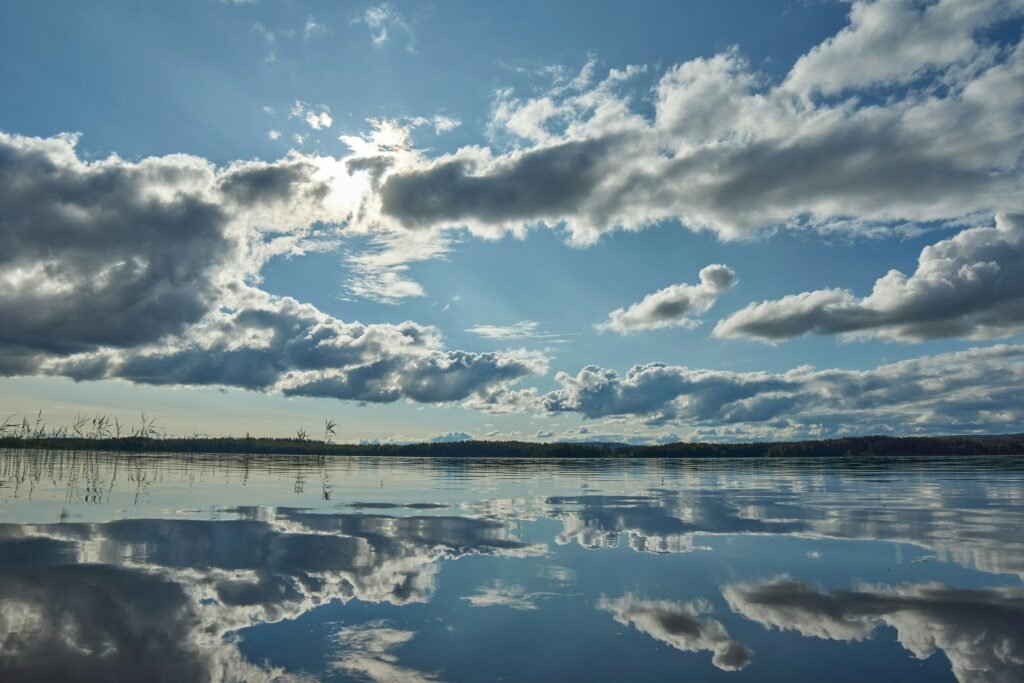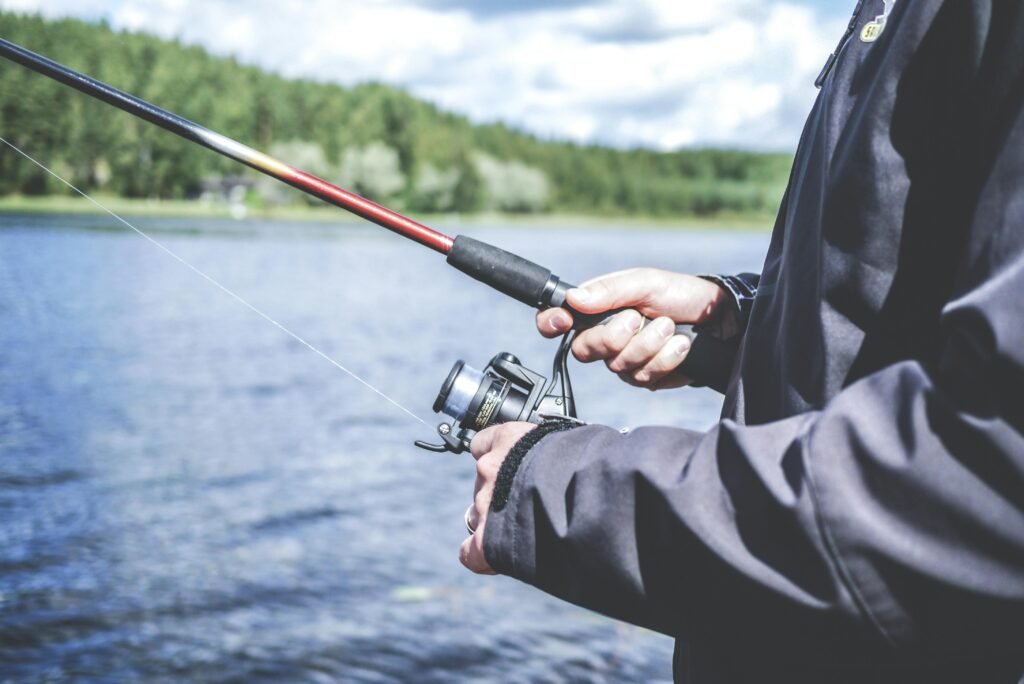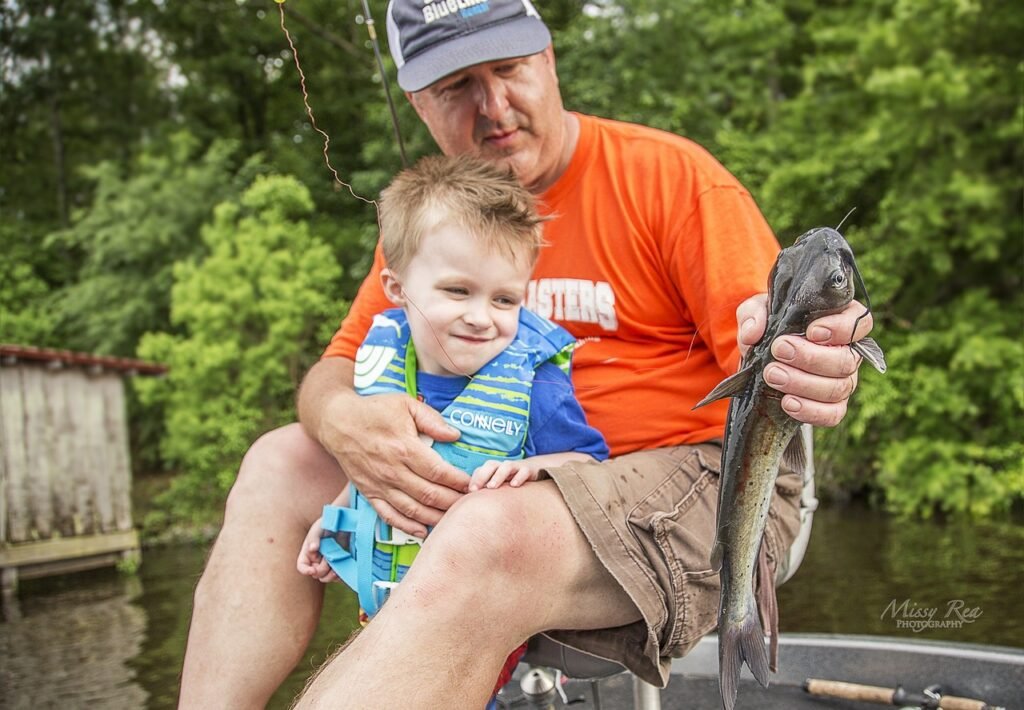Imagine you are planning a fishing trip. You check the weather and wonder how it will affect the fish and your chances of catching them. Here’s a little story to help you understand what goes on in the water during different weather conditions.
The Influence of Temperature
Fish are ectothermic creatures, which implies that their body temperature is dependent on the temperature of the water surrounding them. This relationship directly impacts various aspects of their biology, such as metabolism, activity level, and feeding behaviors. Due to this unique adaptation, fish have evolved to thrive in a wide range of aquatic environments, showcasing the intricate interplay between their physiology and the aquatic ecosystems they inhabit.
Warm Waters:
When water temperatures rise, fish like bass and pike can become more active and may feed more aggressively. However, excessively warm waters can deplete oxygen levels, causing fish to become lethargic and seek deeper, cooler waters.
Cold Waters:
Colder temperatures have an interesting effect on fish metabolism. The drop in temperature prompts fish to conserve energy, leading them to feed less often. For anglers, this means that using slow-moving baits which imitate the reduced activity of fish could increase the likelihood of success in catching them.
Pressure Changes
Barometric pressure can cause fish to alter their behavior. In general, fish are likely to feed more actively before a cold front, making it a prime time for anglers.
Falling Pressure:
Indicative of an approaching storm or a shift in weather patterns, a sudden drop in barometric pressure can lead to fish becoming more active and going into a feeding frenzy. This natural phenomenon is a fascinating display of how aquatic life responds to atmospheric changes.
Rising Pressure:
After a storm passes, the rising barometric pressure can often make fish feel unsettled and less inclined to bite. During these moments, exercising patience becomes crucial. Seek out sheltered areas where fish tend to congregate seeking stability, such as near underwater structures or in calm pockets of water. By observing these behaviors and adapting your fishing strategy accordingly, you can enhance your chances of a successful catch.
The Wind Factor
Wind can stir up the water’s surface, affecting light penetration and, subsequently, fish behavior.
Light Breezes:
A gentle wind can be beneficial as it encourages baitfish to stay near the surface, drawing predators closer to anglers.
Strong Winds:
On the other hand, strong winds have the capability to push fish towards the windward shores, where they seek refuge or navigate towards deeper waters to seek shelter from the turbulent currents and find safer grounds for their aquatic endeavors.
Rain Play
Precipitation plays a crucial role in freshwater ecosystems through various mechanisms. Firstly, rainwater oxygenates the water, promoting the health of aquatic organisms. Secondly, it flushes insects into rivers, creating a natural buffet for fish to feed on, supporting the intricate food web within these ecosystems.
Light Rain:
Soft rains can be excellent for fishing as it typically increases fish activity. The gentle patter of raindrops creates a soothing ambiance, encouraging fish to be more active in their search for food. Additionally, the rain masks noise and disturbances, providing anglers with the perfect cover for casting their lines undetected, increasing the chances of a successful catch.
Heavy Rain:
Heavy downpours, especially those that lead to flooding, can muddy the waters and disorient fish, making fishing conditions challenging. During such times, the increased water flow can alter the behavior of fish species, leading to decreased visibility and difficulty in locating prey. Anglers may need to adjust their fishing techniques and equipment to adapt to the changing conditions brought about by the turbulent waters.
Cloud Cover
Overcast skies often produce some of the best fishing conditions. The diffused light under the thick cloud cover creates an environment where fish feel more secure to venture out and search for food. This increased sense of safety prompts fish to be more active and responsive to bait, making it an ideal time for anglers to enjoy successful fishing outings.
Clear Skies:
During bright sunlit days, the intense sunlight can cause fish to seek shelter in shaded spots or move to deeper areas to avoid the direct light. This behavior can pose a challenge for anglers as it may require different fishing techniques or adjustments in bait presentation to effectively catch these elusive fish.
Overcast Skies:
Cloudy days have an interesting effect on aquatic environments as they reduce the amount of sunlight that can penetrate the water’s surface. This creates a dimmer underwater world, influencing the behavior of fish at various depths within the water column. The decreased light levels can trigger heightened fish activity as they adjust to the changing conditions and search for food sources in this modified environment.
Conclusion
Reading and reacting to the weather is an integral part of a successful fishing expedition. By understanding how various weather conditions influence freshwater habitat and fish behavior, anglers can refine their tactics for a fruitful and enjoyable day on the water. Keep an eye on the forecast, pack your gear accordingly, and remember that sometimes, the best fish tales come from adapting to Mother Nature’s whims.
For the fishing enthusiasts, outdoor adventurers, and nature lovers who cherish freshwater fishing, knowledge is power. Stay prepared, respect wildlife, and enjoy the rhythmic ebb and flow of freshwater fishing, a pursuit deeply intertwined with the elements.
Happy fishing, and may your lines tight with the bounties of well-weathered waters!Ta



